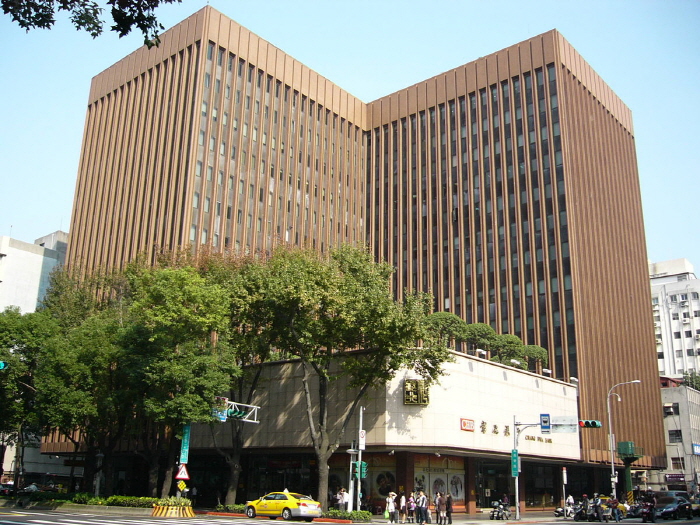Moody's Investors Service says its stable outlook for Taiwan's banking system reflects its expectation that rated banks in Taiwan will maintain their steady credit profiles, despite an economic slowdown, and that they will continue to benefit from strong government support.
"Although weak external conditions are leading to slower growth in industrial production and exports, the impact on Taiwanese banks' asset quality should be buffered by low interest rates and healthy corporate balance sheets," says Sonny Hsu, a Moody's Vice President and Senior Analyst.
"We expect Taiwanese banks to report stable profitability over our outlook horizon, as higher margins from overseas lending will be partially offset by higher credit charges due to tightening regulatory provisioning requirements and slower economic growth," adds Hsu.
Moody's analysis is contained in its just-published report "Banking System Outlook: Taiwan," which provides an overview of credit trends affecting the banking system in the next 12-18 months.
Moody's baseline scenario assumes a material slowdown in Taiwan's real GDP growth to 1.5% in 2015 and 2.0% in 2016, from 3.8% in 2014, with weak exports being a key driver.
This slowdown, coupled with low expected inflationary pressure, will argue for the central bank's monetary policy to stay accommodative for an extended period, even when the US Federal Reserve begins hiking interest rates.
"While the more challenging operating environment will pressure banks' asset quality metrics, we expect the resultant impact to be mitigated by sound corporate financials, continued low interest rates, and a resilient labor market," says Hsu.
Moody's report highlights that Taiwan's economic and financial linkages with China (Aa3 stable) are growing, with banks' total Mainland China exposures rising to 62% of total shareholder equity as of end-June 2015, from 50% as of end-September 2013.
The banks' rising Mainland China lending will expose them to risks associated with the Chinese economy, including the current economic slowdown and the country's ongoing economic rebalancing. Nevertheless, regulatory caps on banks' Mainland China exposures to 100% of banks' common shareholders' equity limit the extent of such exposures.
Meanwhile, Taiwanese banks will likely strengthen their capitalization as they raise fresh equity and maintain modest overall asset growth, although capitalization remains weak relative to regional peers. Some banks will face increasing capital pressure if their expansion, mostly overseas, continues to outpace that of their local peers.
Moody's also expects the government's willingness and capacity to provide support in a stress situation to remain strong. The government has made no effort to introduce a statutory bank resolution regime that entails imposition of losses on creditors on a going-concern basis if a bank becomes non-viability.
The stable outlook on Taiwan's banking system is consistent with the stable outlooks for seven out of 10 Moody's-rated banks in Taiwan. The system's asset-weighted average long-term bank deposit rating is A1, while the asset-weighted average standalone baseline credit assessment is baa2. The stable outlook is also consistent with Moody's outlook on Taiwan's Aa3 government bond rating.



 Geopolitical Shocks That Could Reshape Financial Markets in 2025
Geopolitical Shocks That Could Reshape Financial Markets in 2025  U.S. Stocks vs. Bonds: Are Diverging Valuations Signaling a Shift?
U.S. Stocks vs. Bonds: Are Diverging Valuations Signaling a Shift?  US Futures Rise as Investors Eye Earnings, Inflation Data, and Wildfire Impacts
US Futures Rise as Investors Eye Earnings, Inflation Data, and Wildfire Impacts  Stock Futures Dip as Investors Await Key Payrolls Data
Stock Futures Dip as Investors Await Key Payrolls Data  Global Markets React to Strong U.S. Jobs Data and Rising Yields
Global Markets React to Strong U.S. Jobs Data and Rising Yields  UBS Predicts Potential Fed Rate Cut Amid Strong US Economic Data
UBS Predicts Potential Fed Rate Cut Amid Strong US Economic Data  Gold Prices Slide as Rate Cut Prospects Diminish; Copper Gains on China Stimulus Hopes
Gold Prices Slide as Rate Cut Prospects Diminish; Copper Gains on China Stimulus Hopes  Mexico's Undervalued Equity Market Offers Long-Term Investment Potential
Mexico's Undervalued Equity Market Offers Long-Term Investment Potential  Wall Street Analysts Weigh in on Latest NFP Data
Wall Street Analysts Weigh in on Latest NFP Data  Energy Sector Outlook 2025: AI's Role and Market Dynamics
Energy Sector Outlook 2025: AI's Role and Market Dynamics  Gold Prices Fall Amid Rate Jitters; Copper Steady as China Stimulus Eyed
Gold Prices Fall Amid Rate Jitters; Copper Steady as China Stimulus Eyed  S&P 500 Relies on Tech for Growth in Q4 2024, Says Barclays
S&P 500 Relies on Tech for Growth in Q4 2024, Says Barclays  US Gas Market Poised for Supercycle: Bernstein Analysts
US Gas Market Poised for Supercycle: Bernstein Analysts  China’s Growth Faces Structural Challenges Amid Doubts Over Data
China’s Growth Faces Structural Challenges Amid Doubts Over Data  European Stocks Rally on Chinese Growth and Mining Merger Speculation
European Stocks Rally on Chinese Growth and Mining Merger Speculation  Fed May Resume Rate Hikes: BofA Analysts Outline Key Scenarios
Fed May Resume Rate Hikes: BofA Analysts Outline Key Scenarios  Moldova Criticizes Russia Amid Transdniestria Energy Crisis
Moldova Criticizes Russia Amid Transdniestria Energy Crisis 































